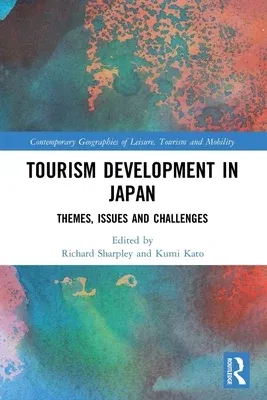Tourism Development in Japan: Themes, Issues and ChallengesPaperback, 1 August 2022

Qty
1
Turbo
Ships in 2 - 3 days
Only 2 left
Free Delivery
Cash on Delivery
15 Days
Free Returns
Secure Checkout

Part of Series
Contemporary Geographies of Leisure, Tourism and Mobility
Print Length
282 pages
Language
English
Publisher
Routledge
Date Published
1 Aug 2022
ISBN-10
0367567741
ISBN-13
9780367567743
Description
Product Details
Book Format:
Paperback
Country of Origin:
US
Date Published:
1 August 2022
Dimensions:
23.39 x
15.6 x
1.57 cm
ISBN-10:
0367567741
ISBN-13:
9780367567743
Language:
English
Location:
Oxford
Pages:
282
Publisher:
Weight:
421.84 gm